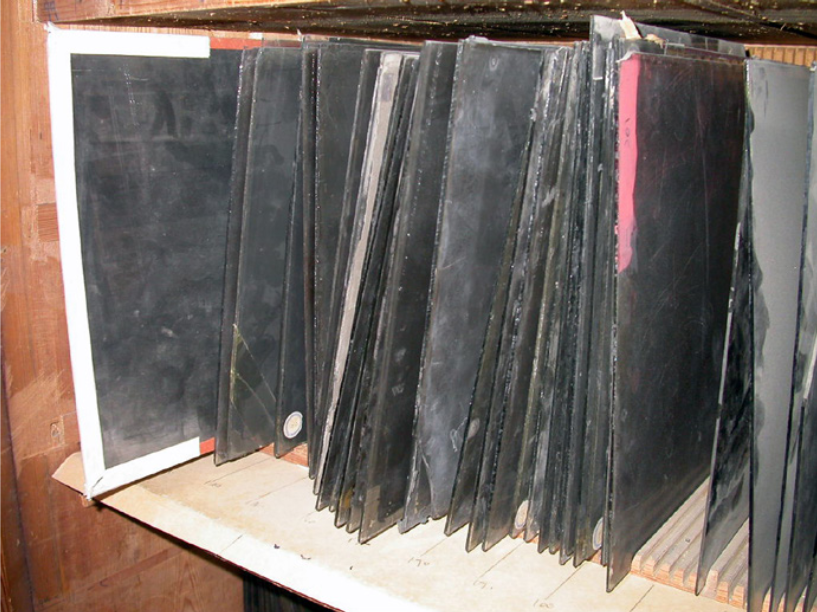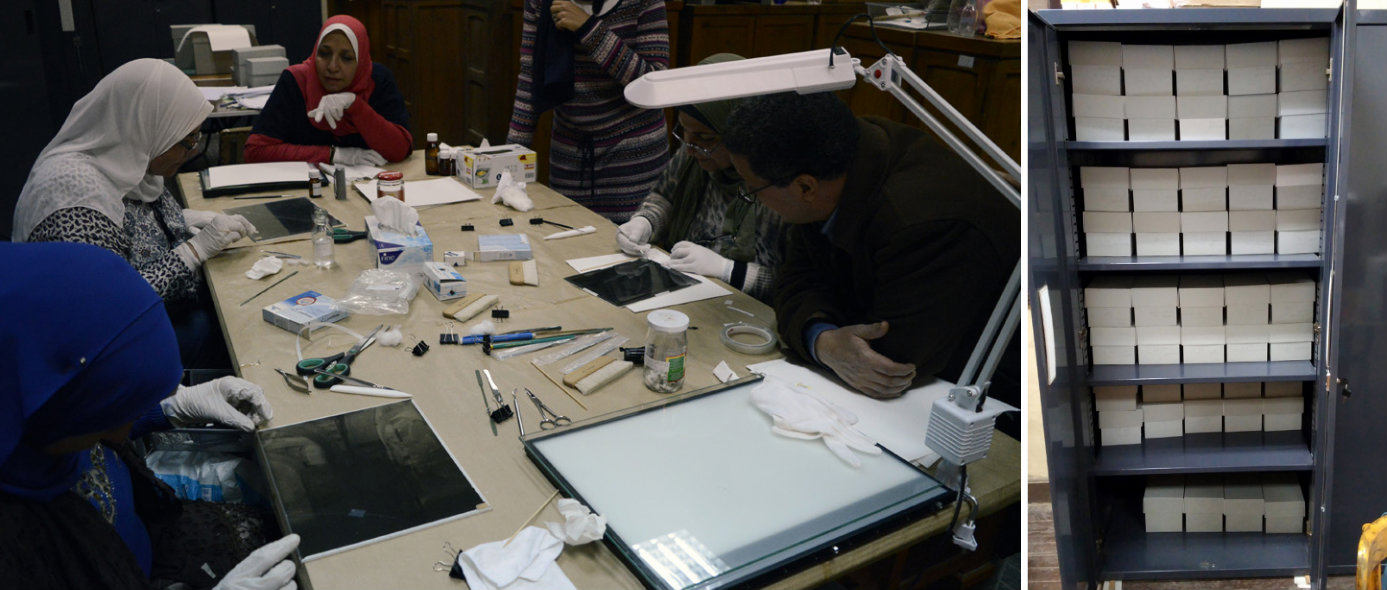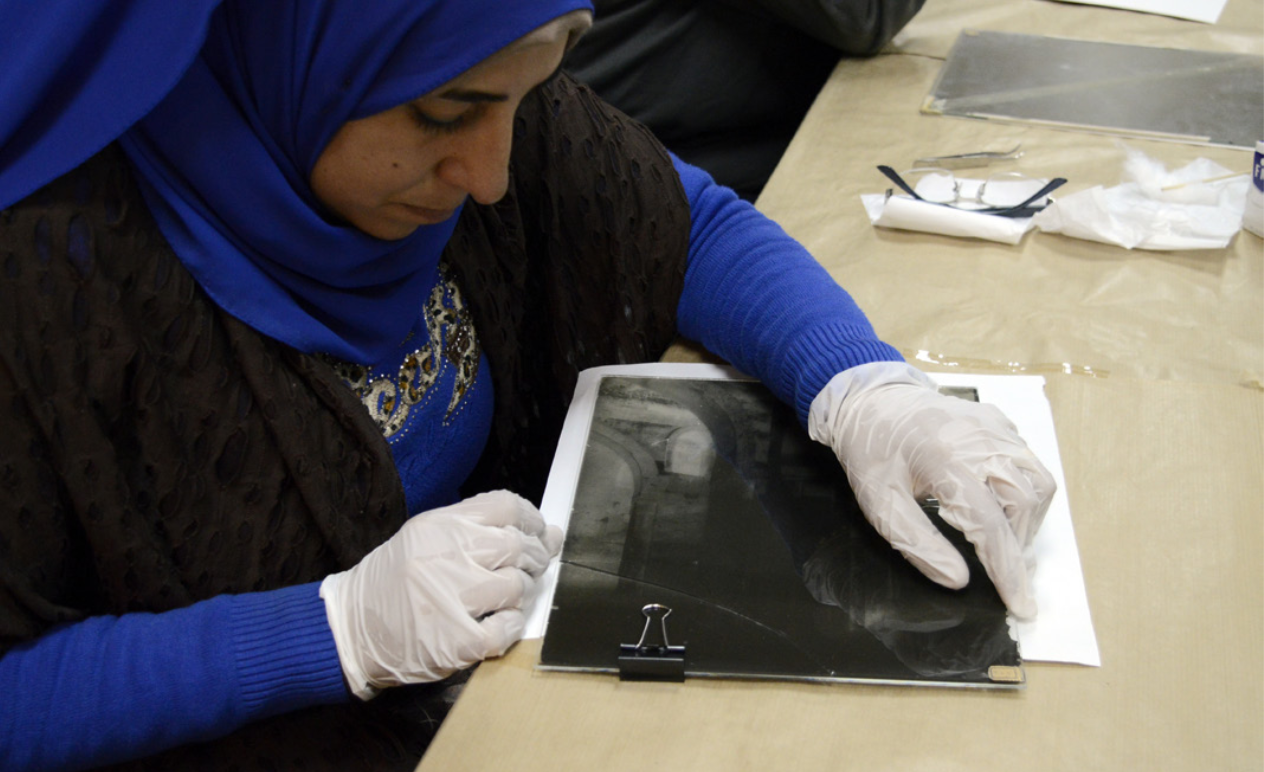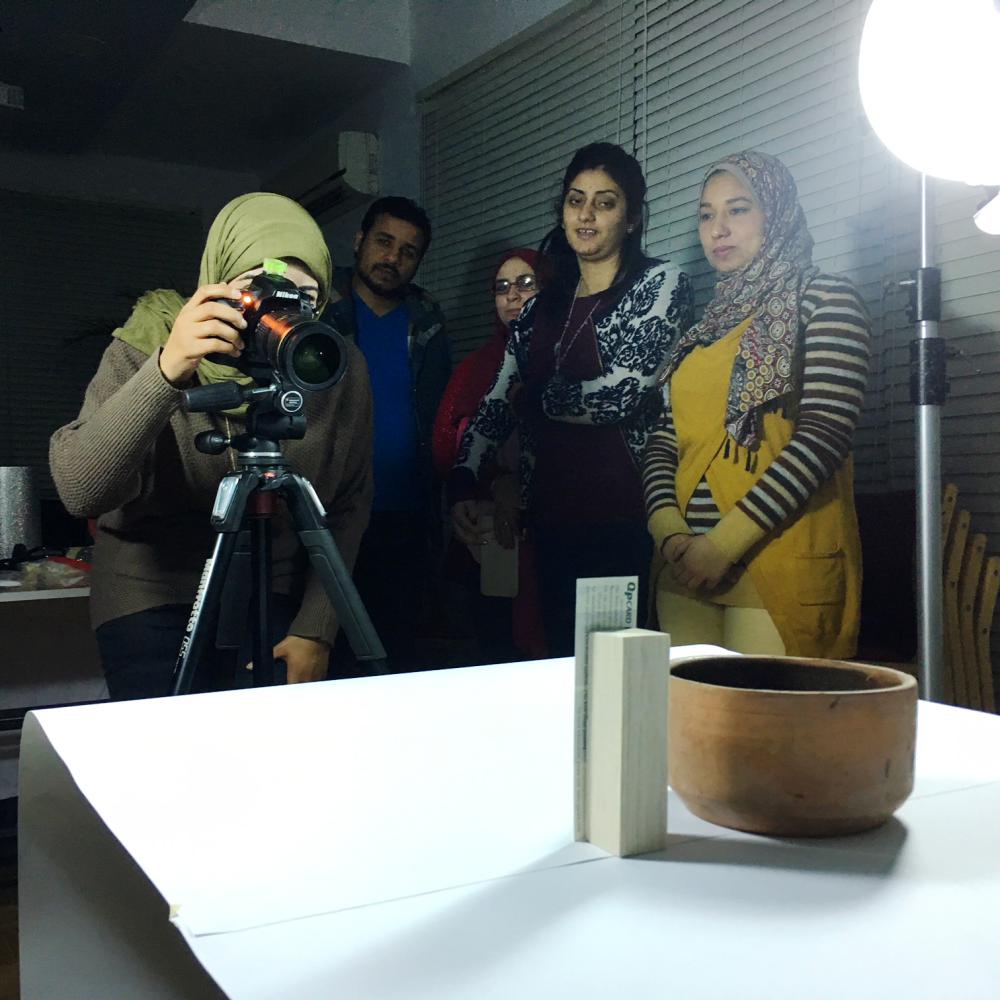Egypt comprises ca. 14,000 objects, mainly silver gelatine glass negatives and acetate sheet film negatives. Since 2002 the German Archaeological Institute Cairo is involved in a restauration and training program. The project aims at helping to secure, safely store, and conserve the glass negatives and at training of local inspectors in order to create local conservation and restauration capacities. The restoration program is supported by the German Foreign Ministry.
The Photographic Archive of the Comité de Conservation des Monuments de l’Art Arabe at the Citadel in Cairo contains approximately 14,000 photographs. The objects are mainly silver gelatine glass negatives dating into the first half of the 20th century. Only a small part of the archive consists of acetate sheet film negatives and albumen photographs, which were used in the 19th century. To this day the images, showing antiquities, monuments and ancient cities, have not lost any of their fascinating appeal. To store the glass negatives, special wood cabinets were made, presumably 1931. The glass negatives were stored in the boxes in upright position. The improper handling and storage of the panels led to significant damage and contamination such as breaking, silver-mirroring, bacterial attack and insect infestation.

The Restoration of the Glass Negatives
Between October 2002 and October 2003, the German Archaeological Institute Cairo carried out the first restoration phase. The glass panels were taken from the wooden cabinets and stored in envelopes and boxes especially suited for archiving photographs. The new material was imported from Germany. During the process the existing numbers on the glass plates were compared with the remaining registry book of the Comité and corrected if necessary. The boxes are stored today in newly purchased metal cabinets. However, due to difficulties on-site and significant damage to the panels, further work is needed.

Trainingprogram in Egypt
In order to complete the restoration of the glass negatives, a second restoration phase was carried out in 2015/2016. The major focus was on the practical training in restoration of the inspectors. After completing the final phase, the team of the citadel is now able to restore almost all the state images on the glass negatives independently. With the restoration of the glass negatives and the training of the inspectors on the citadel, a first step has now been taken. With the help of the trained staff of the Center of Documentation, this important restoration project can now be completed in near future.
Cooperation: Ministry of State for Antiquities Affairs/ Egypt, Center of Documentation, Citadel; Institut Francais d‘Archéologie Orientale du Caire.
Funding: German Foreign Ministry
Project Coordination: Wolfgang Mayer.
Team: N. Ahmed, K. Aue, K. Bartels, S. Falk, S. Heckert
Read more
E-Research report of the German Archaeological Insitute (GER)
Photographic Archive Projects in Sudan



